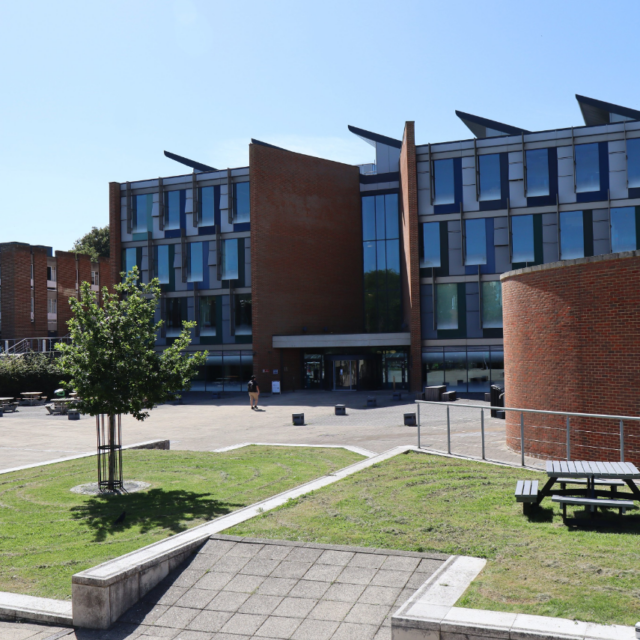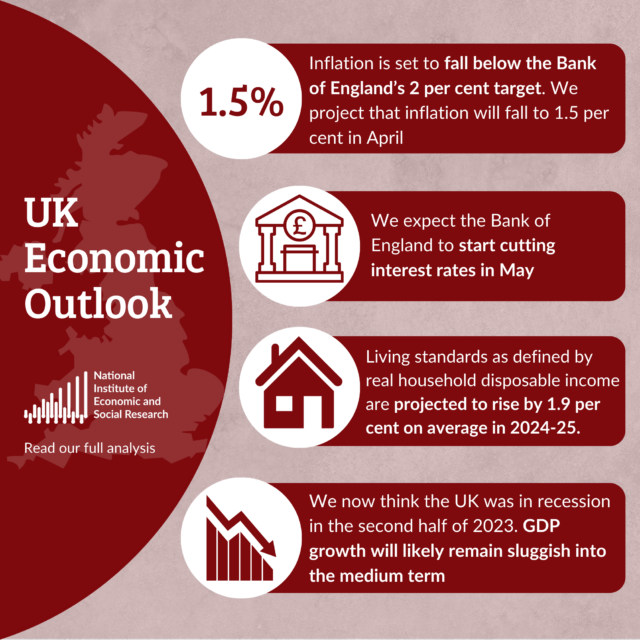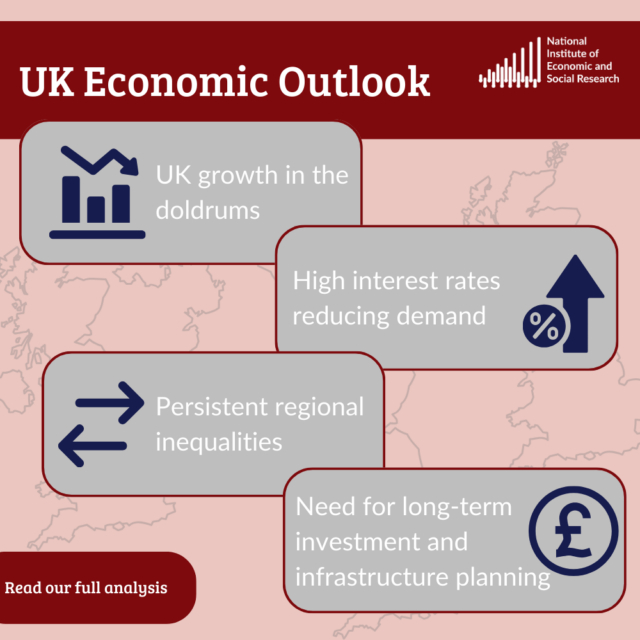Exploring The UK Productivity Commission
Ahead of its first report, which examines the evidence surrounding productivity in the UK, Professor Stephen Millard speaks to Matt Panteli, the Head of Policy at The UK Productivity Commission about what has been uncovered during the last year and what the plans are for the future of The Commission.

Perhaps a good place to start would be if you could talk me through what The UK Productivity Commission is, who set it up and what it’s purpose is?
The UK Productivity Commission has been established by NIESR as part of The Productivity Institute, which is funded by the Economic and Social Research Council.
Its main purpose is to examine the UK’s poor productivity performance and provide policy solutions to address the shortfall.
There are three objectives of The Commission:
- Help understand and communicate the policy implications of new academic research related to UK productivity
- Collect evidence from key stakeholders and provide summaries of research and evidence with an emphasis on regions and the devolved nations
- Examine the implication of planned policies, respond to policy initiatives in Whitehall, elsewhere and overseas, provide policy advice and develop policy proposals.
There are 18 Commissioners, all of whom are experts in the field of productivity. Prior to our launch event in September last year, the Commissioners met to agree how The Commission would function in its first year.
They agreed to hold regular evidence sessions with two to four witnesses, which would be live-streamed. The sessions would run much like a select committee in Parliament, with Commissioners taking it in turn to question the witnesses, with a few short reports published along the way.
The Commission has now been running a year. What has it done during that time?
We held a hybrid launch event in September 2021 with the Commissioners that was broadcast live. The Commissioners explained the background of The Commission and how it was going to function, and discussed what they saw as some of the key issues that they wanted to examine
We issued a call for written evidence shortly after the launch event, which focused on sizing the productivity problem from international, regional and sectoral perspectives.
We used the 20-plus pieces of written evidence that we received to form the basis of the line of questioning for the first oral evidence session, which took place on 23 November 2021. The witnesses were María Belén Zinni from the OECD, Louise Hellem from the CBI, Josh Martin from the ONS (now at the Bank of England), and Paul Swinney from the Centre for Cities.
In December last year, we issued the second call for written evidence, which focused on the international best practice of productivity. The witnesses for the evidence session on this topic on 17 February 2022 were Chiara Criscuolo from the OECD, John Fernald, Professor of Economics, Beata Javorcik from the EBRD and Chad Syverson, Professor of Economics.
Our third evidence session focused on what policies should be implemented to improve UK productivity, so we heard from a current and former policy maker. The witnesses on 16 March 2022 were Jesse Norman, Conservative MP and former Treasury Minister, and Kitty Ussher, former Labour MP and Treasury minister and currently the chief economist at the IoD.
This week, we are aiming to publish our first report.
And, after a year of collecting evidence, what would you say The Commission has discovered?
Our first report will summarise the evidence that we have received so far. It introduces the concepts of productivity and the UK productivity puzzle before discussing issues around ‘sizing the problem’ and ‘measurement’ at international, national and regional levels.
It discusses productivity across and within sectors before moving on to potential explanations of weak productivity growth in the UK, concluding with a selection of potential policy priorities that came out of the evidence that The Commission received.
There are a number of key insights that we’ve drawn out of the report, which seek to answer the following important questions:
- Why is productivity important?
- When did productivity growth in the UK begin to slow down?
- Why has productivity growth in the UK slowed down?
- How can productivity in the UK be improved and ‘levelled up’?
The evidence that we collected underlines the importance of productivity, its impact on living standards, and the need to improve productivity growth in the UK.
The report looks at the individual cost of poor productivity growth since its slowdown, which the bulk of evidence indicates started circa 2007-08, the impact on productivity growth by firms at the frontier and the so-called laggards, how the size, ownership and structure of a firm can affect productivity compared to the sector in which it operates, and some of the policies that have been suggested to help improve productivity growth across the UK.
Finally, what are the next steps for The Commission as it moves into its second year and beyond?
We will aim to publish a second report shortly after The Commission’s first report is published. The second report will provide some conclusions on what Commissioners have learned and what The Commission will look at in its future years.
The evidence sessions in the first year of The Commission were quite broad and wide-ranging. The plan for future years is to focus on specificity and depth to drill down into the detail on particular policy issues.
The second report will set out some of the areas that The Commission will examine in its future years, based on both the lessons that have been learned in the first year of evidence gathering and on the reasons for policy intervention, which include market imperfection, complementarities between policy interventions, the need to move from short-term to long-term planning, and institutional fragmentation between policy domains and geographic levels.
The list of policy areas won’t be exhaustive, but may include topics such as the financing of investment, skills, competition and firm dynamics.
Over the next few years, The Commission will look to hold quarterly evidence sessions and publish a report after each session that will make suggestions to the Government for how the UK can improve its productivity. The Commission will also examine different ways to hear from productivity experts, such as presentations from authors of policy papers.







